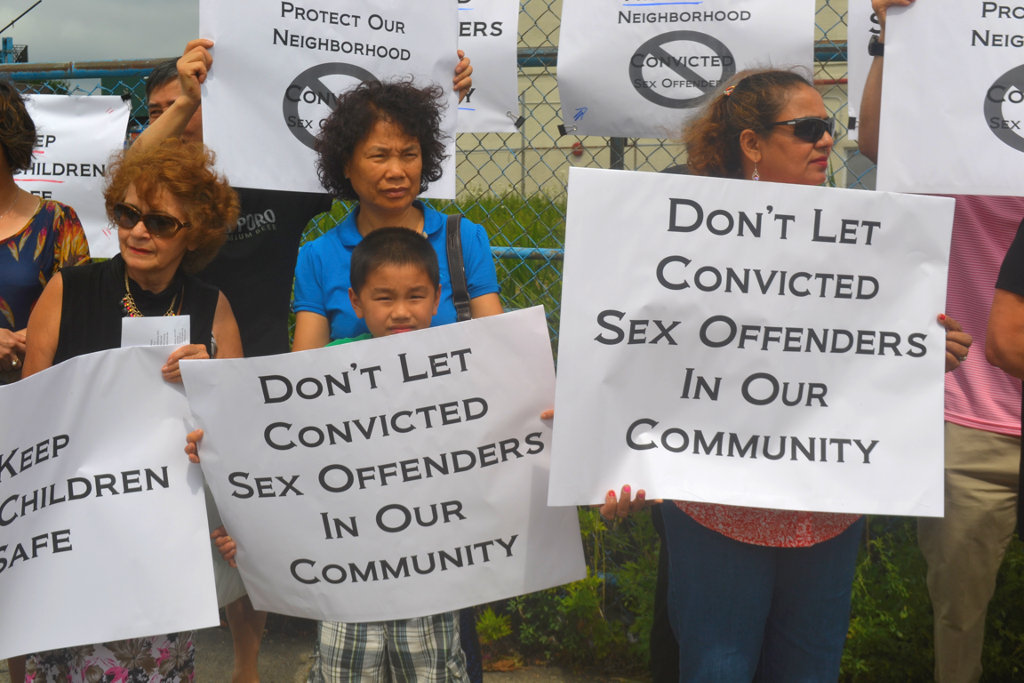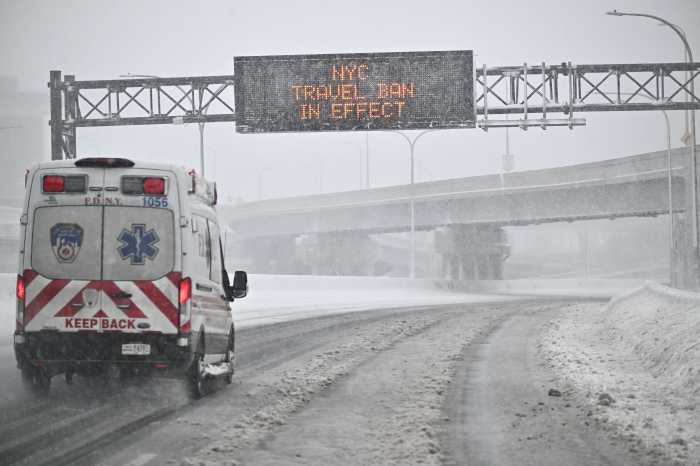Elmhurst residents rallied in front of the Boulevard Family Residence on Tuesday after it was revealed that two Level 3 sex offenders had lived in the family shelter.
“The city has violated a promise it made to Senator [Jeffrey] Klein and myself that they would not house sex offenders, especially Level 3 sex offenders, in shelters throughout the entire city,” state Senator Tony Avella said at the rally.
Members of Elmhurst United, a community group aimed at improving the quality of life for residents, discovered that two Level 3 sex offenders were living in the shelter at 79-00 Queens Blvd. after checking the state’s sex offender registry.
The Boulevard Family Residence, which used to be the site of the Pan-American Hotel, was turned into a family homeless shelter in 2014 despite severe backlash from Elmhurst residents.
Dwayne Clark, 48, is listed in the state Division of Criminal Justice Services (DCJS) sex offender registry with the address 79-00 Queens Blvd., the same address as the family shelter. Clark was convicted in 1995 of first-degree sexual abuse after he assaulted two 13-year-old girls and a 10-year-old girl.
Rodney Moultrie, 47, was convicted of first-degree attempted rape in 2003. His residence was also listed as 79-00 Queens Blvd. and his room number was listed on the site. The DCJS previously told the Queens Chronicle that both men submitted paperwork on June 7 claiming they lived in the shelter.
The men may have moved out since then as they have 10 days to alert the agency of a change of address.
Lauren Gray, the NYC Department of Homeless Services Senior Advisor for Communications, previously told QNS that no one on the registry currently lives in the Boulevard Family Residence and that DHS has a legal obligation to house all city residents.
“We are legally obligated to provide shelter to any New Yorker, regardless of background, who would otherwise be turned out onto the streets,” Gray said. “All placements we make are in compliance with state law, and we can confirm that there is no one residing at this location who is in the registry.”
It is city policy to try to keep families in homeless shelters together even if a member is a convicted sex offender. Only parole officers or probation officers may place limitations on where sex offenders can live.
“DHS claims that there is no law preventing sex offenders from being housed in family shelters, but have they forgotten that sex offenders cannot live within 1,000 feet of a school?” said Anna Orjuela of Elmhurst United.
State Senator Toby Ann Stavisky recently held a meeting with the Human Resources Administration, DHS, Queens Borough President Melinda Katz’s office and other city agencies to discuss the sex offenders living in the shelter.
“According to HRA, there are currently no registered sex offenders living at the shelter, which is a relief,” Stavisky said. “However, due to privacy laws, we have no way of knowing if these individuals had ever lived at the Pan-Am and, if so, for how long.”
Indira Moskowitz, who lives two blocks away from the shelter on Kneeland Avenue, said this revelation was “troublesome,” especially because there are three schools near the shelter.
“It’s as though you’re giving a jar of milk to a cat,” Moskowitz said.
She has been an Elmhurst resident for 20 years, living here “when [the shelter] was a glorious hotel and now we’re here for the dumpster,” Moskowitz said.
She added that she doesn’t feel safe walking around the area anymore and argues that it is unfair to the families living in the shelter and around the area to live near a poorly maintained property.
“We work very hard to maintain our properties and it’s unfair when you look on the sidewalk and you see all this garbage here,” Moskowitz said. “Who should come out with a broom? That’s not our responsibility.”
The Elmhurst resident said she wants the building to be converted to an affordable housing apartment for low-income families if the property owners agree to maintain it and match the character of the neighborhood.
Avella once again called for the city to stop using the former hotel as a homeless shelter.
“It is not appropriate,” Avella said. “It was the wrong location in the first place and it’s about time the city do the right thing not only by the community but by the people it’s supposed to be helping.”



































